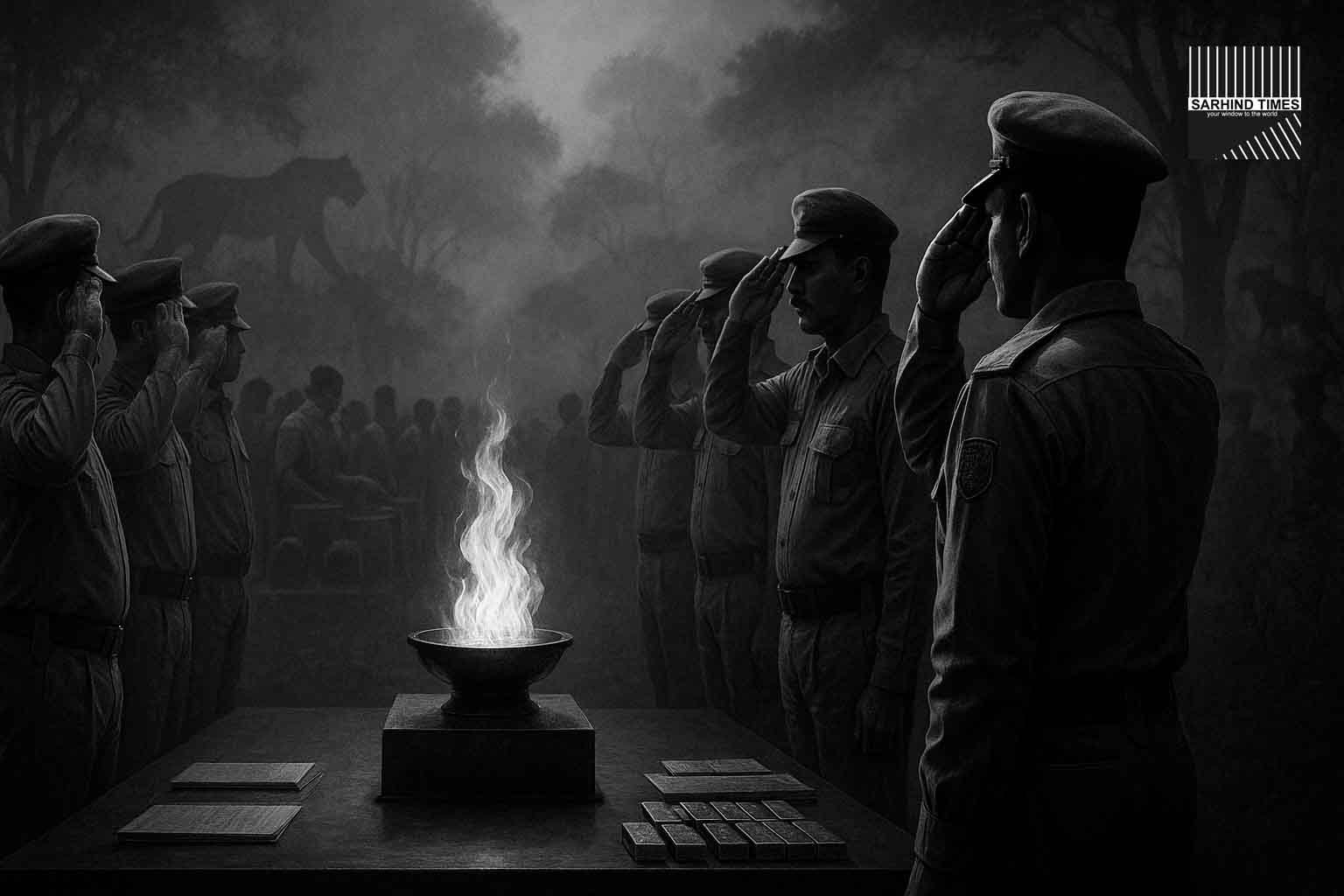The Jharkhand-based tiger reserve will commemorate fallen forest personnel on September 11, honoring their sacrifice in protecting India’s wildlife and biodiversity.
Introduction
On September 11, 2025, history will be made at Palamu Tiger Reserve in Jharkhand as it hosts India’s first National Forest Martyrs’ Day. The observance aims to honor the countless forest guards, rangers, and personnel who laid down their lives in the line of duty, safeguarding India’s forests, wildlife, and ecological treasures.
The move reflects a growing recognition of the human cost of conservation, where frontline defenders face poaching networks, timber mafias, illegal miners, and even hostile terrain to protect biodiversity. For the first time, India will officially pause to remember these sacrifices—turning the spotlight on the unsung heroes of environmental protection.
Background & Context
The proposal to institute National Forest Martyrs’ Day has long been championed by environmentalists and forestry officials. While India has Wildlife Week and World Environment Day celebrations, the risks faced by forest personnel often remain invisible to the broader public.
India is home to over 104 national parks, 566 wildlife sanctuaries, and 52 tiger reserves—but protecting these ecosystems is dangerous work. Forest guards are often under-equipped and underpaid, yet they patrol vast stretches of wilderness against:
- Armed poachers targeting tigers, elephants, and rhinos.
- Illegal logging syndicates destroying biodiversity hotspots.
- Mining mafias encroaching upon forest land.
- Conflict with local human settlements and insurgencies in forested regions.
According to the Ministry of Environment, Forest and Climate Change (MoEFCC), India has lost hundreds of forest personnel in recent decades to violence, accidents, and animal encounters while on duty.
Why Palamu Tiger Reserve?
Palamu Tiger Reserve, established in 1974 as part of Project Tiger, is among India’s oldest reserves. Spread across over 1,000 square kilometers in Jharkhand’s Latehar district, it is known for both its biodiversity and challenges.
- Rich Ecosystem: Home to tigers, leopards, elephants, gaur, and diverse flora.
- Conflict Zone: The reserve has witnessed Naxalite insurgency, making forest patrolling particularly dangerous.
- Symbolism: Choosing Palamu as the venue highlights the intersection of biodiversity conservation and human sacrifice, making it a poignant choice for the inaugural event.
The Ceremony & Observances
On September 11, the Palamu Tiger Reserve will host:
- Memorial Wreath-Laying: Honoring forest martyrs with a symbolic tribute.
- Roll of Honor: Reading out names of personnel who died on duty.
- Awareness Campaigns: Educating the public about threats to forests and biodiversity.
- Youth Involvement: Students and local communities participating in conservation workshops.
- Policy Discussions: Officials and conservationists debating better protection measures, technology adoption, and welfare for forest personnel.
The day is expected to become an annual observance nationwide, much like Police Commemoration Day or Armed Forces Flag Day.
Impact & Significance
For Forest Personnel
The observance is a moral recognition of their sacrifice. It provides families of martyrs with a sense of dignity and ensures their stories are told nationally.
For Conservation
Elevating forest rangers as national heroes may strengthen conservation ethics, highlighting that protecting tigers and elephants is as critical as defending borders.
For Public Awareness
Most citizens remain unaware of the everyday risks faced by forest guards. National Forest Martyrs’ Day will bridge this gap, turning public attention toward the realities of frontline conservation.
Expert Opinions
- Conservationist, Dr. Ramesh Mehra:
“India loses more forest personnel to duty than many countries lose soldiers in combat. Recognizing them formally is long overdue.” - Retired Forest Officer, Anita Verma:
“A forest guard carries only a stick or an old rifle but faces poachers with automatic weapons. Their courage deserves the nation’s salute.” - Environmentalist, Sunita Narain:
“This day must not be symbolic alone. It should lead to systemic reforms—better training, insurance, and modern technology for forest staff.”
Broader Relevance
- Politics: By institutionalizing this day, the government signals political will toward environmental protection.
- Economy: Forests are vital to carbon capture, water security, and sustainable livelihoods—their protection carries economic weight.
- Society: Recognizing forest martyrs fosters respect for ecological stewardship within communities.
- Global Leadership: India, a signatory to multiple climate accords, sets an example by formally acknowledging the human price of conservation.
Challenges Ahead
While the observance is a landmark, experts caution against tokenism. Real change will depend on:
- Improved Infrastructure: Equipping forest personnel with modern surveillance tools—drones, GPS, and communication systems.
- Insurance & Welfare: Ensuring adequate support for families of martyrs.
- Community Involvement: Involving local populations in conservation to reduce man-animal conflict.
- Policy Continuity: Making sure the day leads to long-term conservation strategy, not just annual symbolism.
Future Implications
- Legislative Push: Expect stronger calls for a National Forest Protection Act with special provisions for ranger safety.
- Youth Movements: Forest Martyrs’ Day could inspire a new generation to view conservation as a patriotic duty.
- International Recognition: India may propose similar global observances at forums like the United Nations Environment Programme (UNEP).
- Sustainable Development Goals (SDGs): The observance aligns with SDG 15 – Life on Land, reinforcing India’s climate commitments.
Conclusion
The launch of National Forest Martyrs’ Day at Palamu Tiger Reserve is a turning point in how India perceives conservation. It recognizes that environmental protection is not just about animals and trees but also about human courage and sacrifice.
As the nation salutes its fallen guardians, the challenge is to transform remembrance into policy, resources, and resilience—so that the forests they died defending can thrive, and their families can live with honor.
This day is more than a tribute—it is a pledge to stand with the protectors of India’s green frontiers.
#ForestMartyrs #Conservation #PalamuTigerReserve #WildlifeProtection #Awareness #Biodiversity #EcoWarriors #Sustainability #GreenHeroes #IndiaForForests




+ There are no comments
Add yours